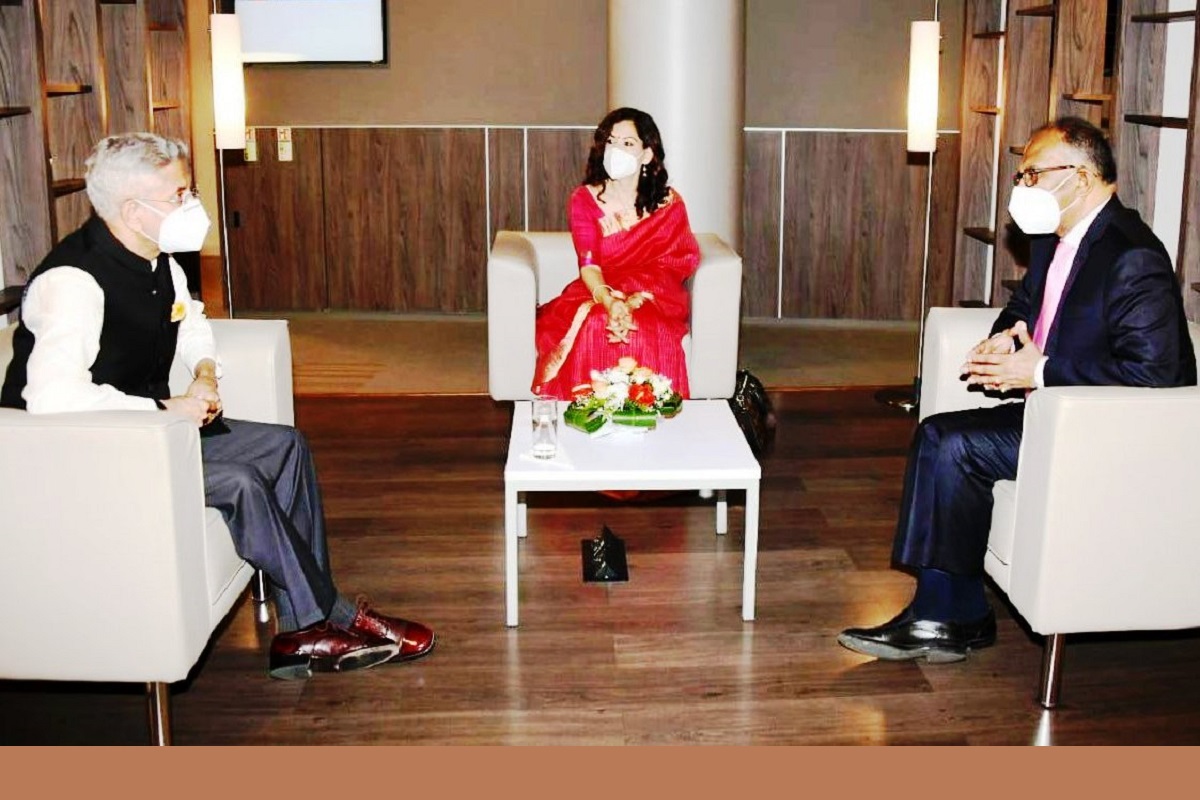“PM Modi to be Guest of Honour for National Day celebrations”: Mauritius PM Ramgoolam
Mauritius Prime Minister Navin Ramgoolam on Friday said that Prime Minister Narendra Modi would be the Guest of Honour at the nation's National Day celebrations.
The diplomacy has covered public health, with India supplying 23 tonnes of essential medicines.

(Image: Twitter/@DrSJaishankar)
The watershed development during the external affairs minister, Mr S Jaishankar’s visit to Mauritius was Tuesday’s free trade and investment agreement, indeed the first of its kind with any country in the continent of Africa.
Viewed through the multilateral prism, this was the first time in course of a decade that India concluded a free trade agreement with any country, howsoever congenial the trade relations. It is fervently to be hoped that the Composite Economic Cooperation and Partnership Agreement (CECPA) will provide a boost to the revival of bilateral economies, post the pandemic.
Advertisement
The joint economic initiative, therefore, follows the deadly scourge almost throughout the world and ought theoretically to enable Indian investors to use Mauritius as a lauch-pad for the expansion of business into continental Africa and thus help the prospect of Mauritius emerging as what Mr Jaishankar called a “hub of Africa”.
Advertisement
Apart from the economic underpinning of his visit, the minister offered a remarkably humanitarian gesture by handing over an additional 100,000 doses of Covid vaccines to the Prime Minister of Mauritius, Pravind Jugnauth.
The fresh cache of vaccines is in addition to the 100,000 doses advanced to Mauritius towards the end of January. In terms of essential commodities, Mauritius will be accorded “preferential access” for the export of 40,000 tonnes of sugar within an early time-frame.
Similar access will be permitted for the export of 7.5 million pieces of apparel. In the services sector, India has offered 11 broad services. Services contribute 76 per cent of the GDP in Mauritius. And to quote Mr Jaishankar, “CECPA will certainly boost the dynamism of the services sector in Mauritius.
Indian companies could benefit by leveraging the bilingual prowess of Mauritius for investments in Francophone Africa”. In terms of security, India has leased out a Dornier aircraft and an Advanced Light Helicopter, Druv, “on a grant basis for two years”.
A special $100 million Defence Line of Credit has also been signed. It will facilitate the procurement of defence assets from India in accord with the needs of Mauritius. By taking recourse to diplomatic alliteration, Mr Jaishankar has described his visit to Mauritius as “responsive, resolute and reliable”. So indeed was his performance in Saint Louis.
The diplomacy has covered public health, with India supplying 23 tonnes of essential medicines. The bilateral partnership covers significant elements of public policy. Profound are the economic implications of Mr Jaishankar’s visit to Mauritius, verily the first by the incumbent external affairs minister to any country in the continent of Africa. Peace in Mauritius has arguably been a determinant, so very unlike the storm-centres of Yemen and Sudan.
Advertisement